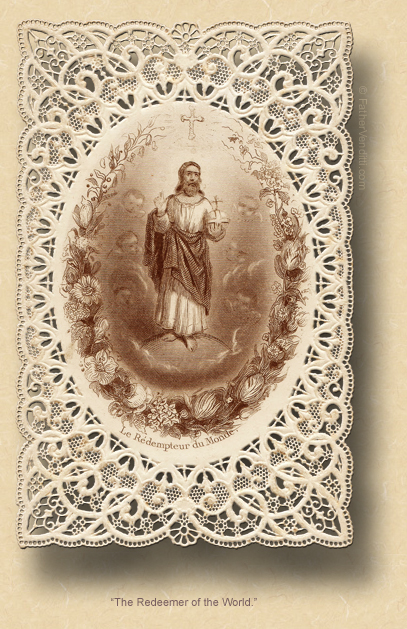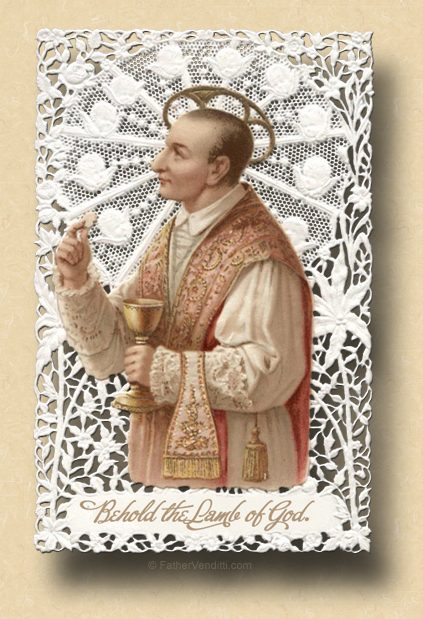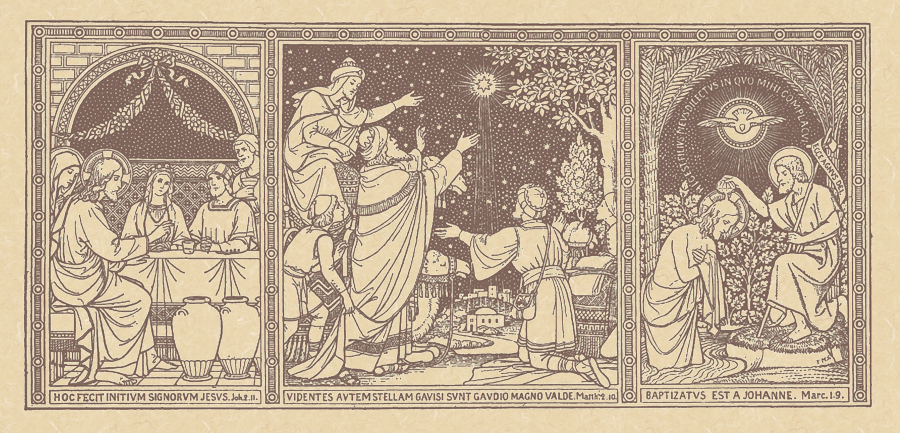If You Meet the Buddha on the Road, Kill Him.*
[An Epilogue to Christmas & Epiphany.]
The First Sunday of Ordinary Time: the Feast of the Baptism of the Lord.
Lessons from the tertiary dominica, according to the ordinary form of the Roman Rite:
• Isaiah 42: 1-4, 6-7.
• Psalm 29: 1-4, 3, 9-10.
• Acts 10: 34-38.
• Luke 2: 15-16, 21-22.
|
When the alternate lessons are taken:**
• Isaiah 40: 1-5, 9-11.
• Psalm 104: 1-4, 24-25, 27-30.
• Titus 2: 11-14; 3: 4-7.
• Luke 2: 15-16, 21-22.
|
The First Sunday after Epiphany: the Second Class Feast of the Holy Family.***
Lessons from the proper, according to the extraordinary form of the Roman Rite:
• Colossians 3: 12-17.
• Psalm 26: 4.
• Luke 2: 42-52.
FatherVenditti.com
|
 6:24 PM 1/12/2019 — Many years ago—more than I care to remember—I had a coworker who was a very devout Buddhist; and, when I quit my job to go to the seminary, he gave me a gift: a book about Jesus written by his local lama, kind of like a Buddhist pastor. And it was a lovely little book of meditations focusing on all the wonderful things that Jesus did and all the wonderful things that Jesus said, with some very practical reflections on how we might incorporate the message of Jesus into our daily lives. I don't have that book anymore, but I wish I did because it would make for a very interesting experiment: I should like to take that book, paste over the name of the author—Lama Boobaboobala, or whatever his name was—and then hand it to Catholics and see how many of them would be able to recognize what's wrong with it. 6:24 PM 1/12/2019 — Many years ago—more than I care to remember—I had a coworker who was a very devout Buddhist; and, when I quit my job to go to the seminary, he gave me a gift: a book about Jesus written by his local lama, kind of like a Buddhist pastor. And it was a lovely little book of meditations focusing on all the wonderful things that Jesus did and all the wonderful things that Jesus said, with some very practical reflections on how we might incorporate the message of Jesus into our daily lives. I don't have that book anymore, but I wish I did because it would make for a very interesting experiment: I should like to take that book, paste over the name of the author—Lama Boobaboobala, or whatever his name was—and then hand it to Catholics and see how many of them would be able to recognize what's wrong with it.
Today's feast, the Baptism of the Lord, marks the end of the Christmas and Epiphany season. Two and a half weeks ago, I had reminded you of the relationship between the Manger and the Cross, and had warned you against allowing the traditional feelings that typically overcome us at Christmas time from becoming a narcotic, numbing us to the reality of what the Incarnation of God into this world means: the Baby in the Manger is cute and non-threatening and, for that reason, is naturally a very attractive image of God for us to latch onto; but, I cautioned you to remember that the Baby Jesus is destine for death and, if we are resolved to follow in His footsteps, those footsteps are going to lead us up the mountain of Calvary.
Then came the Feast of the Epiphany. The word means “manifestation,” and is, in effect, a feast celebrating the Divinity of our Blessed Lord, symbolized in the gifts brought to Him by the Magi: gold for Christ the King, frankincense for Christ the High Priest, and Myrrh to be kept for the Crucified Lord so that He can be anointed at His burial.
Last Wednesday, the Gospel lesson presented to us was the first of the two episodes in which Jesus walks upon the water, and you all know the scene: Jesus had just fed the five thousand on the hillside, and then sends His disciples to cross the sea to the other side;  and, while they're doing this they get caught in a gale and are being tossed about violently when they see Jesus walking toward them on the water; and, Saint Mark is the only one of the Evangelists who adds the very curious line that, as Jesus was walking toward them, He “made as if to pass them by” (6: 48 Knox); and, I had asked the question, “Why?” Not just why would Jesus intend to walk past them, but why would Saint Mark think it important enough to even mention? And we observed that this notion of God “passing by” is part of the manifestation of God in the Old Testament, where it is a testimony of God's presence, and we mentioned some examples: God's first meeting with Moses after only hearing His voice from the burning bush (Exodus 34: 5-6); God's initial contact with Elijah in “the whisper of a gentle breeze” (I Kings 19: 11ff); and Job’s prophesy of this very event: “He it was, and no other, that spread out heaven to be his covering, made [the] ocean a floor under his feet … Hidden from my sight, hidden from my thought, he comes and goes [he passes by]” (Job 9: 8, 11 Knox). and, while they're doing this they get caught in a gale and are being tossed about violently when they see Jesus walking toward them on the water; and, Saint Mark is the only one of the Evangelists who adds the very curious line that, as Jesus was walking toward them, He “made as if to pass them by” (6: 48 Knox); and, I had asked the question, “Why?” Not just why would Jesus intend to walk past them, but why would Saint Mark think it important enough to even mention? And we observed that this notion of God “passing by” is part of the manifestation of God in the Old Testament, where it is a testimony of God's presence, and we mentioned some examples: God's first meeting with Moses after only hearing His voice from the burning bush (Exodus 34: 5-6); God's initial contact with Elijah in “the whisper of a gentle breeze” (I Kings 19: 11ff); and Job’s prophesy of this very event: “He it was, and no other, that spread out heaven to be his covering, made [the] ocean a floor under his feet … Hidden from my sight, hidden from my thought, he comes and goes [he passes by]” (Job 9: 8, 11 Knox).
And the lesson I asked you to learn from this was that the Feast of the Epiphany is not just a commemoration of the visit of the Magi;—that pedestrian event is not nearly important enough to warrant a solemnity on the Church's calendar—it's a commemoration of the Divinity of Christ. And, just as He was wont to do in the Old Testament, so God, in the person of Jesus, initially reveals Himself to those who would ultimately believe in Him by subtly passing by: the blind beggar on the road to Jericho (Luke 18: 35-37), the conversion of Zaccheaus (Luke 19: 1-4), the encounter with the disciples on the road to Emmaus (Luke 24: 28ff) and how many other countless encounters there are that all begin the same way: with our Blessed Lord “passing by”? It is the sure mark of divinity.
Today's feast, commemorates the baptism of our Blessed Lord in the River Jordan by John; and, as I'm sure you all know, the baptism performed by John is not the Sacrament of Baptism which we have all received; that wouldn't come to exist until after the Resurrection and Ascension of our Lord. The baptism of John is just a symbol of one's desire to turn away from sin, but it doesn't take away any sin; and our Lord, Who has no sins, submits to it simply to emphasize for us the fact that His humanity is real.  What's important in this episode is not the baptism, but what happens right afterward: “And even as he came up out of the water he saw the heavens opened, and the Spirit, like a dove, coming down and resting upon him. There was a voice, too, out of heaven, 'Thou art my beloved Son; in thee I am well pleased'” (Mark 1: 10-11 Knox). What's important in this episode is not the baptism, but what happens right afterward: “And even as he came up out of the water he saw the heavens opened, and the Spirit, like a dove, coming down and resting upon him. There was a voice, too, out of heaven, 'Thou art my beloved Son; in thee I am well pleased'” (Mark 1: 10-11 Knox).
With today's feast, Christmas and Epiphany come to an end, but not, I hope, our prayerful reflections on these great mysteries; and, as the Gospel lessons of Ordinary Time present to us the message and actions of our Lord's public ministry among us, let us always keep these mysteries in mind, lest we forget that our Lord's practical and even spiritual lessons on life cannot be properly understood except within the context of Who and What He is. Jesus is not a social teacher, His Gospel is not a blueprint for society, nor is His message reducible to a program of good deeds and helping the poor and needy. Christ was not born into the flesh, grace us with an earthly presence, suffer and die for our sins, rise by His own power and return to His Father with Whom He shares undiluted divinity to show us how to create some sort of charitable utopia here on earth; He did these things so that we could, if we want to, reach heaven, and live with Him there forever long after this world and it's concerns have ceased to exist.
It's what was missing from the book my Buddhist friend gave me when I left for the seminary: what Jesus says and what Jesus does is meaningless if we do not believe that Jesus is God, and govern our lives accordingly. And if someone were to approach any one of us and ask, “Who is this Jesus you believe in?” there is only one correct answer, the same answer the Baptist gave when he first spotted our Blessed Lord walking along the banks of the River Jordan, words that we repeat at every Mass when we are blessed to cast our eyes upon the God who became a Man for us: “Behold the Lamb of God who takes away the sin of the world” (John 1: 29 RM3).

* This is the colloquial version of a Zen proverb: "If you meet the Buddha, kill the Buddha; if you meet the Ghost, kill the Ghost,” and enunciates what distinguishes Zen Buddhism, an idiomatically Japanese expression of that religion, from more conventional forms of Buddhism. While the Buddha himself was an historical person, the Zen practitioner attempts to rid himself of any attachment to the person of the Buddha, viewing him as a construct of the mind in the context of purging from himself any emotion, thought and worldliness. In Zen, even the Buddha himself, when allowed to become an object of veneration, can be an impediment to enlightenment; thus, if you meet the Buddha, kill him.
** On this feast, the first three lessons, including the psalm, are proper and constant, with the fourth lesson from the Gospels variable according to the current dominical cycle; however, alternates for the first three lessons according to the current dominical cycle are provided for use at the discretion of the priest.
*** In the extraordinary form, the Sunday after Epiphany is always observed as the feast of the Holy Family, with the Feast of the Baptism of the Lord being immovable on January 13th; however, when the 13th falls on this Sunday (as it does this year), the Feast of the Baptism is suppressed entirely, and is not even commemorated.
|

